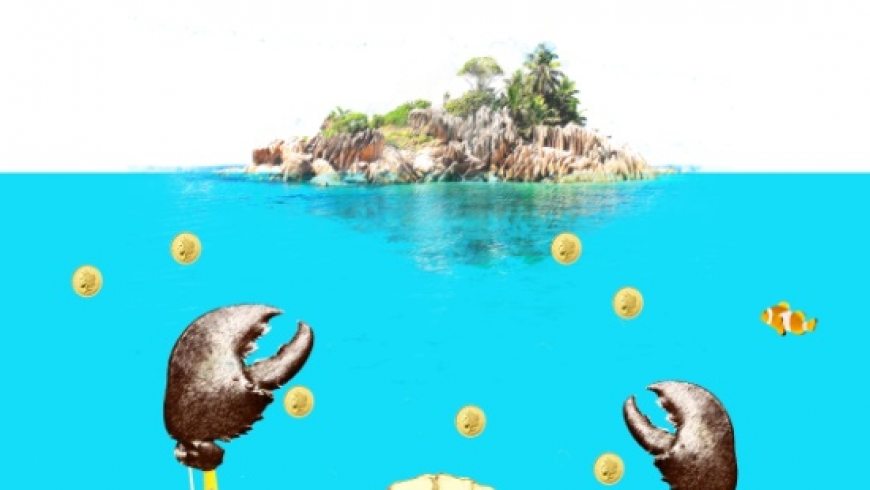“Islands”: Caroline Horton – Review
“Five clowns on an island, defecating on poor people.” I believe that was more or less the exact phrase I used when trying to describe Islands by Caroline Horton to one of my bemused friends. A work-in-progress commissioned by Warwick Arts Centre and Harlow Playhouse, Islands is designed to theatrically explore the idea of tax havens, literally realised through setting the performance on an island called Haven. While an interesting and entertaining concept, there are certainly several aspects that need tightening up for Islands to fully realise its potential.
Your introduction to the world of Islands begins with a tall, bearded clown in a skirt welcoming you and telling you to sit where you like, then inevitably making fun of wherever it is you choose. The strange, rich clowns invite you into their anarchic land, citing the influences of Thatcher, Friedman and Reagan, but an ever-changing internal set of rules prevents you from ever feeling quite settled. This is a major strength of the production, as the dissonance between the lethargic playfulness of the world and the intense scrutinising of its inhabitants creates an unusual and intriguing spectacle.
However, Islands is currently far too long at almost two hours. The performance was built around a clear narrative, but took half an hour to really establish any kind of drive. The conflict at the centre of the performance was between Adam and Eve, two new migrants to Haven, who fought over whether they should stay, whether they were in paradise or an ethical hell. This serious debate, stuck in the middle of a mess of clowning and oddly-placed aprons, was well-realised, but took far too long to begin and resolve.
The other trouble difficulty with the performance was that it didn’t deliver the ethical complexity that it promised. Perhaps this will come with further development, but Islands seemed to work primarily on the basis of demonising selfish rich paymasters and criticising tax havens, something that much of the audience would already have agreed with. The use of messy clowning was an unusual and entertaining way to do so, but it left the audience more with a cathartic anti-capitalist response than anything especially thought-provoking.
There is plenty of potential within Islands, a very amusing and well-acted performance. It will be interesting to see how the work grows, but the problems of narrative drive and using fairly predictable political dichotomies are something that should be top of the fix-it list.

Comments